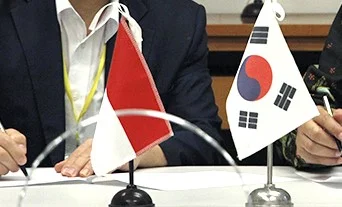Trends and Findings - OECD Sustainable Investment Days 2024
/Destination Strategies’ Managing Director Dan Nicholls recently attended the OECD’s Sustainable Investment Days in Paris. The two-day event was packed with excellent speakers and a wide range of thought-provoking discussions on how to create the right conditions for mobilising quality, sustainable Foreign Direct Investment (FDI). This post outlines a few key takeaways from the event:
Incentives – they’re widespread, but are they well-designed (or even always needed)? 80% of OECD member countries reportedly offer fiscal incentives to investors, and yet monitoring and evaluation activities to establish their impact and value for money are often lacking. A robust, evidence-based approach is needed to design incentives for key strategic development priorities, determining where these incentives can make a valuable difference – including their influence on final investment decisions of key prospective investors. They should also form part of a government’s broader FDI strategy, which should seek to enhance other aspects of the business enabling environment. Investment Promotion Agencies (IPAs), interacting with existing and potential investors on a daily basis, should not only be promoting incentives – they should also be involved in their design.
Well-prepared investment project opportunities are sought by certain types of investors (especially for complex infrastructure projects): private sector representatives reinforced a message delivered in other fora – that there’s a role for government in preparing and then bringing well-designed project opportunities to the market – particularly when it comes to complex infrastructure projects, including PPPs. Establishing technical feasibility and risks are two important aspects, while the private sector and other partners can also provide support to governments in establishing a project’s bankability.
Industrial roadmaps and policies need to define what success will look like: more governments need to set targets in relation to their industrial policies, defining what success will look like. Such roadmaps and policies should also have a degree of agility embedded in them, with periodical reviews and impact assessments conducted, so that adjustments can be announced and made when sufficient evidence suggests these would help the country to achieve the policy’s objectives. Tit-for-tat industrial subsidy development dynamics among competing countries should also be avoided, as these prove particularly challenging for less developed countries that struggle to afford these.
Increased intentions to collaborate regionally on FDI attraction: while FDI attraction typically operates in a competitive landscape, some regional entities are seeking to foster more international collaboration on investment promotion activities among their countries, particularly where regional value chain complementarities are identified and can be leveraged. The AfCTA Secretariat spoke of its plans on this front during this event, while the ASEAN Secretariat, in partnership with the United Nations Economic and Social Commission for Asia and the Pacific (ESCAP), has also recently launched a Regional Investment Promotion Action Plan. Region-level investment promotion initiatives are not new: dedicated bodies such as the Caribbean Association of Investment Promotion Agencies and Pacific Trade Invest are well established, and yet we may now be seeing a move towards increased regional collaboration (even if not dedicated entities) in other parts of the world.
Registered OECD subscribers can view all of the recorded sessions here: https://www.oecd-events.org/investment-days/sessions
the oecd’s conference centre in paris was the venue for the two-day event.









